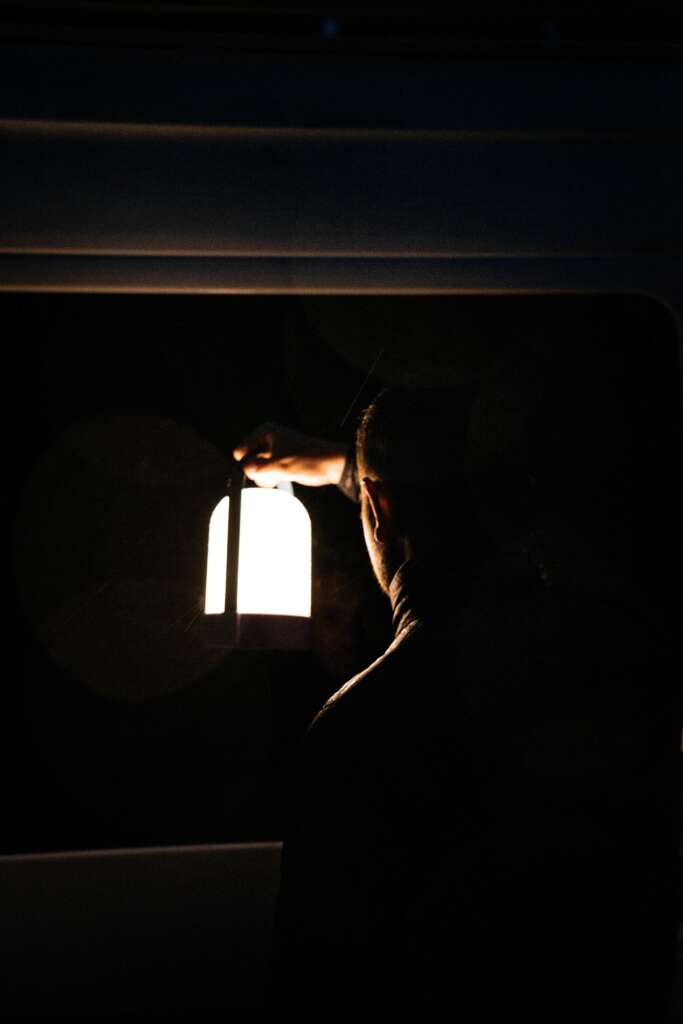Warning: This article mentions suicide.
My wife Sharon and I spent the first few years leading our church looking for the “right person” (or people) to lead it.
Now, with 30 years’ hindsight, it seems ridiculous; but it’s true. It just took us a while to realise we were the people God had called to this ministry. We were slow learners!
I’d like to say, “My wife Sharon and I felt stirred to do something worthwhile with our lives,” but it was really Sharon who felt this way.
I was a young and ambitious chartered accountant, happy forging my career in the business world. While we were both restless, it was mainly Sharon who wanted to live a life of great and fulfilling purpose.
Those early years, when we were planting the church, were some of the darkest times of our lives.
My own experience of coming to faith as an adult had shown me how life-changing faith in Jesus could be. I was (and am) eternally grateful, and I so desperately wanted the same for my friends.
The truth is, those early years were some of the darkest times of our lives. When we were planting the church, we knew seven people who committed suicide. Seven.
In one instance, a young man found out his girlfriend had been cheating on him, so he drank himself into a stupor, penned a lengthy letter, and ended his life with a .22. He finished his time on earth, and moved into an eternity without Christ.
It shook me to my core.
We also experienced the deaths of my father, Sharon’s mother and three other relatives. We were surrounded by death. The reality of how temporary life on earth is screamed at us. We knew that two very different destinations waited beyond the grave, and that we could choose the destination whilst we still had breath.
He talked about planting a church for the unchurched! We were captivated.
Sharon had learned of a wise and respected man who had recently come to live in the same area as us – Launceston, Tasmania. Norman Pell had relocated to be the Superintendent of the Baptist Churches in Tasmania. He had ministered with Billy Graham and Leighton Ford for 17 years, helping them with evangelistic crusades mainly in North America. Surely he could help us find what we were looking for?
I remember the first time we met. Norman asked many questions, before asking one that seemed to hang in the air: “Have you ever considered planting a church?”
Planting a church had never been on our radar. Neither of us had been to Bible College, and, while Sharon had been born in New Guinea to missionary parents, I hadn’t been a Christian for that many years.
But we were interested.
He talked about planting a church for the unchurched! We were captivated. Norman would soon become a loving and inspiring spiritual father.
Over the coming months, I poured over scripture and books to glean what the New Testament said. Six months later we began assembling a core team.
Personally, God went before me and paved the way most remarkably.
We held a marriage-enrichment weekend for “not-yet” Christians. I still recall the feedback from participants who said they’d sensed a kind of love that was unfamiliar. I am still thankful to Jesus that this was their experience!
The following weekend, we started meeting on a Sunday morning at our house. We would talk about what Jesus taught in the gospels and discuss it. These days, you’d call it a micro-church.
About a year after first meeting Norman, we moved into a high school gym and started public services.
Personally, God went before me and paved the way most remarkably. After five years in the business world, I switched from being a bi-vocational church planter to full-time ministry.
That was almost 30 years ago. Many church members have come and gone, but we are still here. About two-thirds of our congregation have come to faith. It did indeed become “a church for the unchurched”, as per Norman’s suggestion – one with a missional focus. Wonderfully, we have also planted out from the church.
Punching holes in the darkness
Sharing with people brings home a sense of calling. Jesus calls each of us to be his ambassadors, continuing his work on earth as his followers. To be fishers of people and make disciples. To get involved in his work by building beacons of hope and love, and a genuine community centred around him, not ourselves.
Those early years were crystal clear for me: Jesus calls us to lay down our lives, dreams and ambitions, and take on his plans for us. That’s probably an unpopular take these days. But I genuinely believe it’s only by doing this that God can truly use us.
Planting a church was the way Jesus disrupted my life and Sharon’s for something infinitely better. Harder yet more rewarding. We did this so his light would reach men, women and children who didn’t know him.
These days, I not only pastor our church, but I also lead an organisation called Exponential Australia that wants to see the Aussie church renew its passion for church planting.
I firmly believe that church planting is the future of the church in our nation. If you haven’t, please look at the latest research that we (Exponential Australia) released in partnership with NCLS Research and you will see we need new churches to be planted. We need men and women to be envisioned and equipped to hear and respond to the call to plant them.
That’s what church planters do. They punch holes in the darkness.
As the brilliant Tim Keller once wrote:
“The vigorous, continual planting of new congregations is the single most crucial strategy for (1) the numerical growth of the body of Christ in a city and (2) the continual corporate renewal and revival of the existing churches in a city. Nothing else—not crusades, outreach programs, parachurch ministries, growing megachurches, congregational consulting, nor church renewal processes—will have the consistent impact of dynamic, extensive church planting. This is an eyebrow-raising statement, but to those who have done any study at all, it is not even controversial.” (‘Why Plant Churches‘, 1 January 2002)
I remember reading about the famous English writer Robert Louis Stevenson when he was a sickly child. Late one afternoon, as the light drained from the sky and the evening fell, his nurse entered his room to find him looking out the window. She asked the young Stevenson what he was doing, and he indicated to a man lighting gas lanterns in the street.
“I’m watching a man punch holes in the darkness,” he said.

Friends, that’s what church planters do. They punch holes in the darkness. Because light always dispels darkness.
Australia needs more churches that punch holes in the darkness.
Tim O’Neill is the Exec. Chair of Exponential Australia and is passionate about seeing ordinary men and women being used by God in extraordinary ways. Exponential Australia exists to see church planting multiplication become a primary and widely embraced measure of success in the church. Tim can be contacted at [email protected].
Read more articles by Tim O’Neill via the links below:


